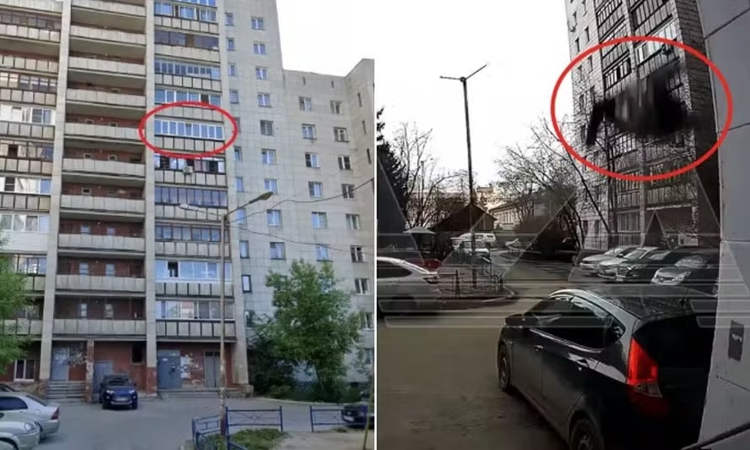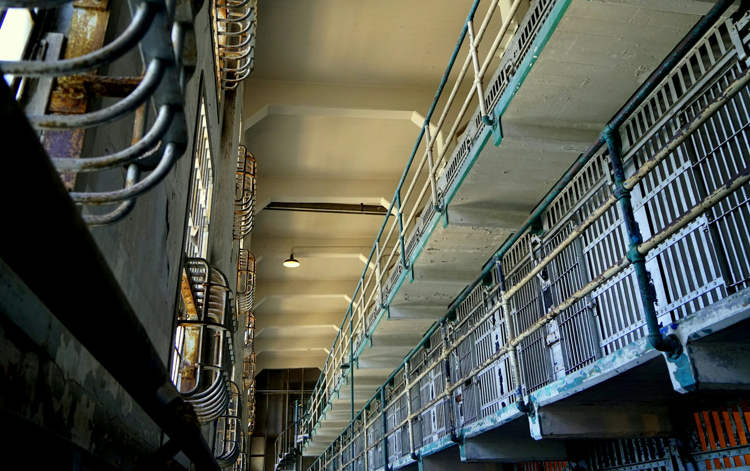A pizzeria in Oslo, Norway, recently came under fire after it was revealed that its digital adverts were actually filming passers by, analyzing their facial features and displaying different adverts according to a variety of factors.
The monitoring system was accidentally revealed at the beginning of May, when the system crashed and software code was displayed on screen instead of the usual ads. Linus Tech Tips forum user “Nepturion” happened to be passing by Peppe’s Pizza, in an Oslo shopping center, when he noticed the bizarre code generated on the digital advertising banner. A closer look revealed a small camera concealed in the wooden frame of the advert, and after watching the screen for a few minutes, Nepturion realized that the messages generated by the computer were describing him, and changed every time a different person passed by.
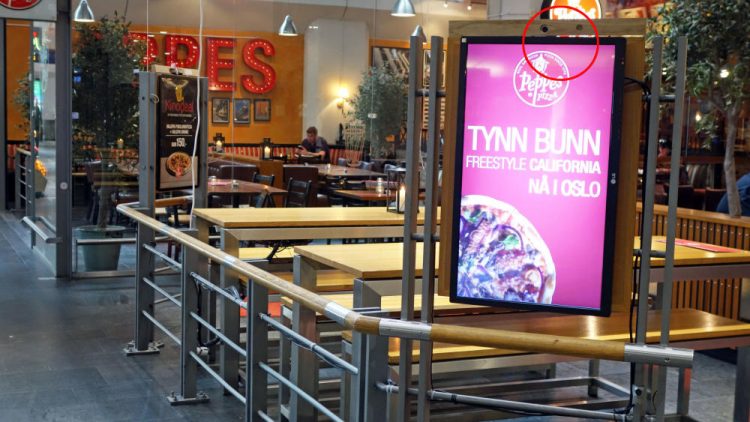
Photo: TV2 Norway
The code included parameters like a “male – young adult”, “attention time”, “smile” and “glasses”, and was generated by a monitoring software designed to increase sales by displaying different adverts to passers by based on their sex, physical traits, and facial expression. Nepturion took some photos of the distopian-like digital banner and posted them online, where they quickly went viral and attracted the attention of mainstream media.
“There is these billboard ads, which people look at for information. This isn’t news… but there is a camera over the billboard and it registers persons looking at the billboard itself,” Nepturion wrote on the Linus Tech Tips forum. “It gives feedback in form of code which is revealed when the software crashed.”
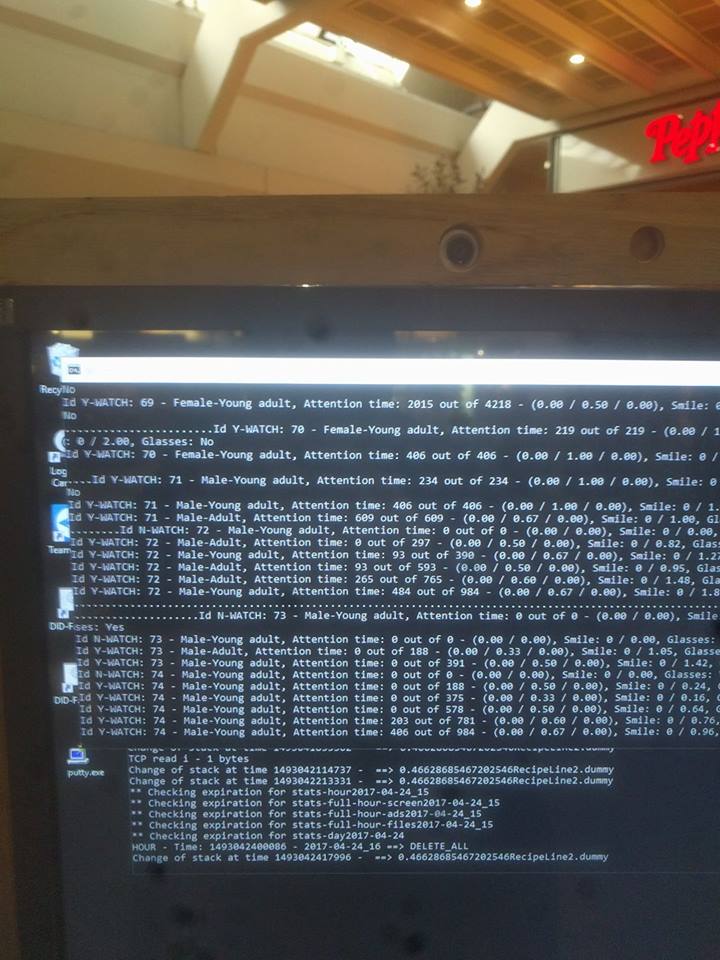
Photo: Jeff Newman/Nepturion
The photos sparked a heated debate on Norwegian social media, with many people arguing that it is illegal to film people without their consent. Others argued that this sort of thing had been going on for years, but most people just don’t know about it. It turns out that monitoring people in a public place like a shopping center is not illegal, but following the backlash, Pepe’s Pizza decided to take down the controversial advertising banner.
The pizzeria mentioned that they didn’t remove the monitoring system because it was freaking people out, but simply because its trial period had simply come to an end. That’s quite the coincidence, wouldn’t you say?
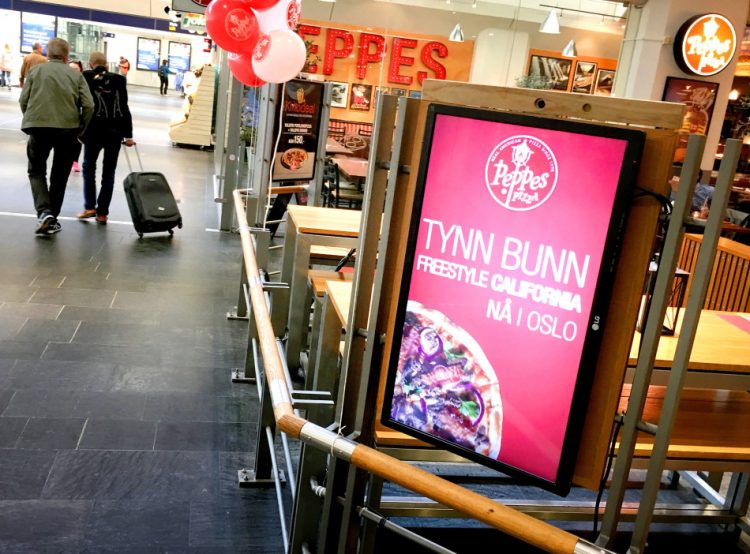
Photo: Ole Petter Stokke Baugerød/Dinside
Norwegian news site Dinside contacted Nepturion, whose real name is Jeff Newman, who declared himself shocked about the discovery. “As I approached the display, text began scrolling on the screen, and I realized that it was about me,” he said. “I wondered if other people around me knew what the advert actually did, I thought people should know about this.”
Jørn Olsen, marketing and communications manager at ProntoTV, the company that developed the controversial advertising system, later explained how it works. If a person looks at the advertising display and they are a maximum of five meters away, the concealed camera analyzes their face and the software then displays a targeted advert based on a variety of factors and how long you look at the banner.
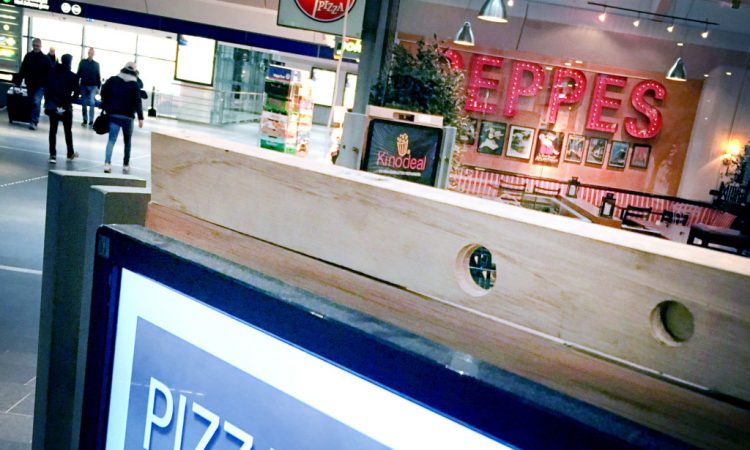
Photo: Ole Petter Stokke Baugerød/Dinside
“If a woman passes by the sign, the banner will show more healthy food options, with less meat,” Olsen told Dinside. “So we can see how long this woman looks at the screen when certain adverts are displayed, and use this information serve these adverts to other women.”
Olsen says that the system is similar to how internet advertising companies use demographic statistics to serve certain ads, and that it is perfectly legal. He argues that movies like “Minority Report” give people the wrong idea of how this technology is used in real life. They think that the cameras are watching them, knowing exactly where they are, but in fact they are doing a generic demographic segmentation.
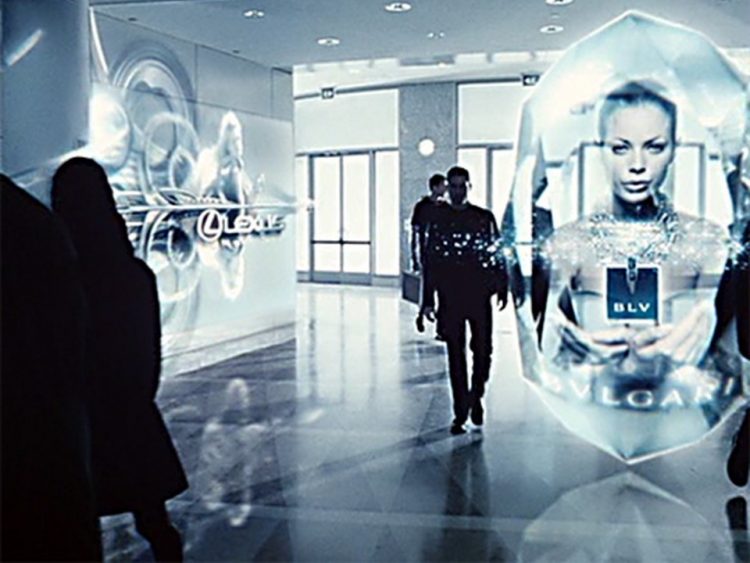
Photo: Minority Report screengrab
ProntoTV claims to have gotten a thumbs up from Norway’s Data Inspectorate before installing the system at Pepe’s Pizza, but Stian D. Kringlebotn, a senior adviser with the inspectorate, told Dinside that regardless of the legality of the project has serious privacy implications. He admits that the inspectorate has no real experience in this field, as metadata records like those collected by ProntoTV are uncharted territories for them.


